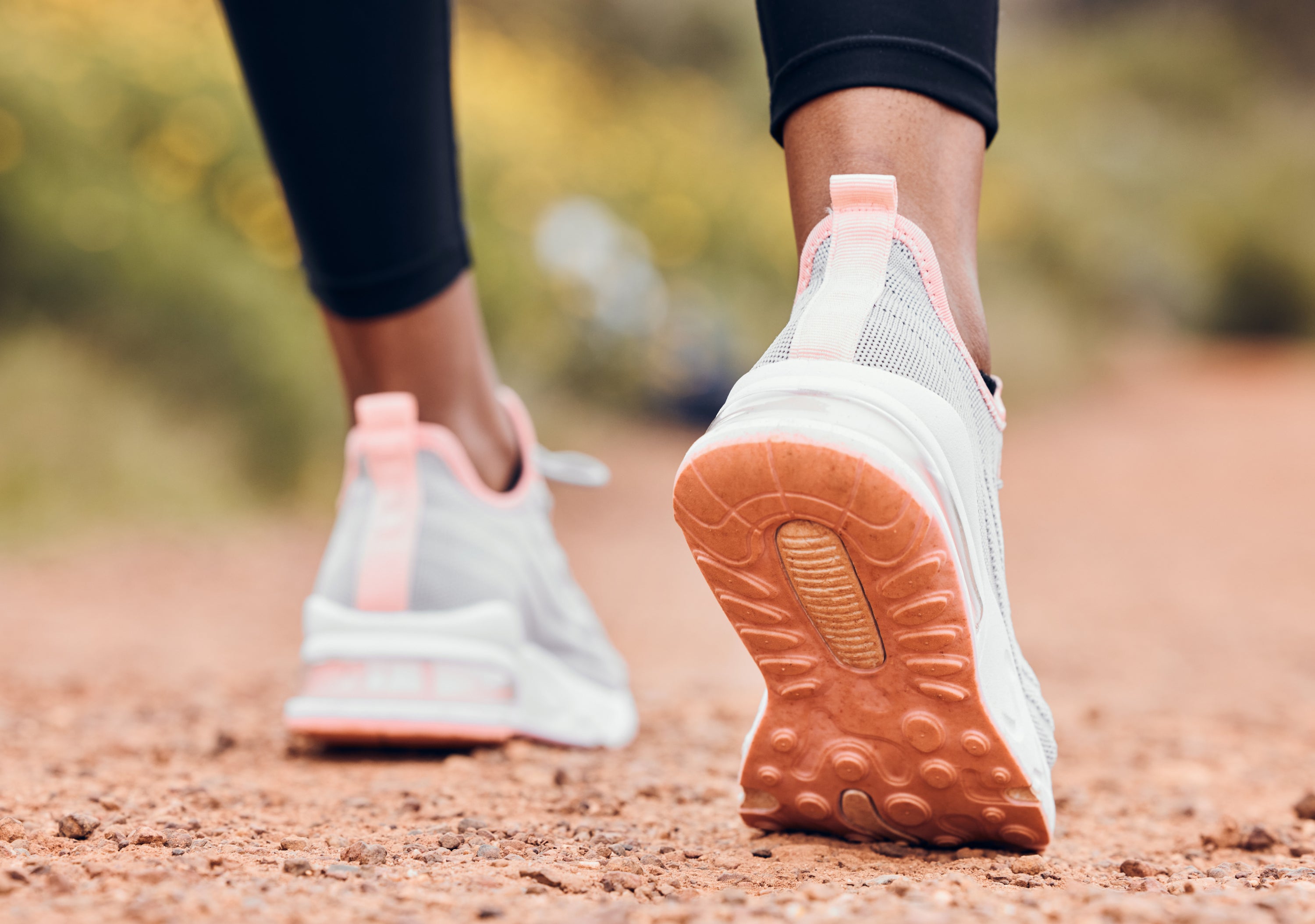Whether watching TV, looking at our phones, standing at a counter, or sitting at a desk, we spend a lot of time being still. That means we might not be getting the recommended 150 minutes of physical activity a week we need to stay healthy.
The good news? You don’t need a gym membership or fancy equipment to be active. Walking about 30 minutes a day has the potential to change your life by boosting your fitness and reducing your risk of heart disease, cancer, and dementia.
Why walking every day can be good for you
We all know we should walk more, but do you ever wonder why? Besides helping you hit your step count, a daily walk may enable you to:- Lower blood pressure
- Lower cholesterol
- Manage weight
- Strengthen bones
- Reduce the risk of osteoporosis
- Boost your mood
- Improve cognitive function
- Improve mental health
The benefits of walking for wellness
- A healthy heart: Walking consistently over time may help lower blood pressure and cholesterol, reducing the risk of heart disease or heart attack.
- Stronger bones: Brisk walking is considered a weight-bearing exercise, which is important for strengthening bones and reducing further bone loss as we get older.
- Better mood: A quick, 10-minute walk can be a mood-booster, and research has shown that adults who take more high-intensity steps a day than their peers are at a lower risk for developing dementia.
- Maintaining and losing weight: When you walk for 30 minutes, you could be burning up to 150 calories.
How to make walking a part of daily life
Walking is accessible to many people, there’s no equipment needed, and (best of all) it’s free. If you’re just getting started, walk at an easy pace and don’t go too far. You can build intensity and distance over time.How to start walking (and making it a habit)
- Dress the part: Your clothes and shoes can make all the difference when it comes to walking. Pick natural or moisture-wicking fabrics and comfortable hiking boots or sneakers depending on the terrain.
- Stay hydrated: Lots of things can impact how much water you need to drink (e.g., age, pregnancy, intensity level, weather), but it’s always a good idea to bring some along.
- Choose a soundtrack: Your favorite podcast or playlist, a phone call with a friend, or the sounds of nature; having something to listen to on your walk can make time pass quickly.
- Invite a friend: Ask someone to go for walks with you, or bring along your dog (walking is good for them, too).
- Track your progress: Use an activity tracker or pedometer to see how many steps you take each day.
- Be safe: If you’re walking in a heavily trafficked area, stay where drivers can see you, cross at crosswalks, and wear reflective clothing at night. If you’re walking a trail that’s off the beaten path, tell someone where you’re going and make sure your phone is charged in case of an emergency.
- Find opportunities: Uncover extra steps in your daily routine whether that’s taking the stairs or pacing during phone calls, meetings, or watching TV.
Going for a walk may not seem like a big deal, but the next time you’re out there, remember that each step you take could help change your life.


